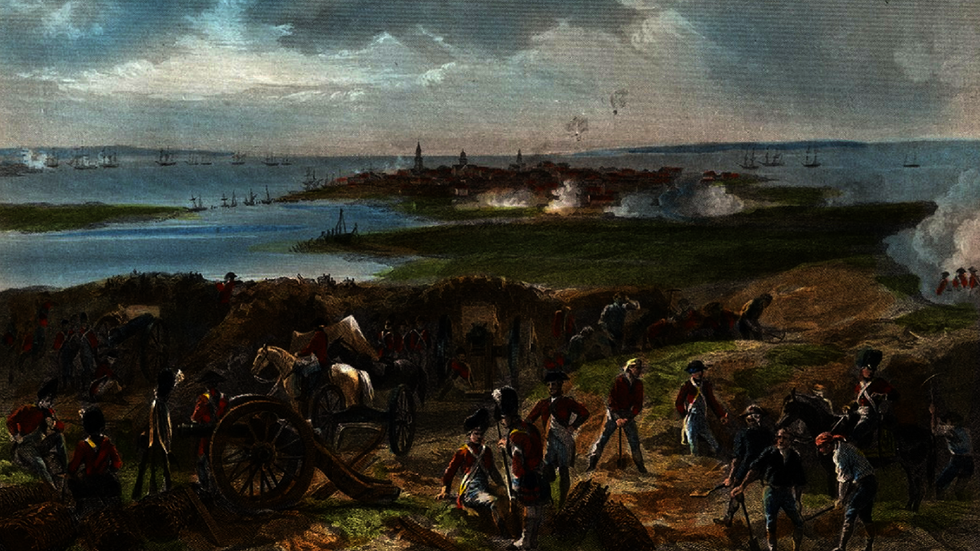
Maj. Gen. Benjamin Lincoln surrendered to British Lt. Gen. Sir Henry Clinton and his 8,000 troops on May 12 after more than a month-long siege.

CHARLESTON, SOUTH CAROLINA (MAY 12, 1780) — The patriot cause suffered a crushing blow when Continental Army soldiers were defeated in Charleston today. Maj. Gen. Benjamin Lincoln has surrendered to British Lt. Gen. Sir Henry Clinton and his 8,000 troops after more than a month-long siege.
The Continental Army's loss and surrender on this day handed over 3,000 patriots along with munitions and supplies to England, giving the British an advantage in the South that the patriots can hardly afford. In the harsh terms of the surrender, Lincoln and his men were refused the honors of war. The British captured more than 300 cannons and around 6,000 muskets.
The British general and his army of 10,000 first laid siege to Charleston on April 2, with the Americans suffering greatly at the hands of the British. After less than a fortnight, the South Carolina government secretly fled Charleston. Soon after, British siege guns began firing on the city.
A raid on April 13 further devastated American forces when Lt. Col. Banastre Tarleton, in command of loyalist troops, captured 400 soldiers during a skirmish at Monck’s Corner. The conduct of Tarleton's loyalists was harshly criticized by colonists in the area, who accused the troops of committing atrocities on the local populace.
On April 22, Lincoln made a final effort to preserve his men, asking Clinton for a surrender deal where his Continental forces could go free if they gave over the city. Clinton refused, sensing that victory was close.
Lincoln was prevented from retreating from within and without – inside Charleston, the city’s remaining authorities refused to let him try to evacuate his men and even threatened to destroy their boats if they tried to escape.
The British turned to heated shells on May 11 as the way to finally break Lincoln and his forces. Fires in the city from the heated shells were enough to persuade Charleston’s remaining civilian leaders to plead for surrender.
While the American soldiers successfully fended off the British at Moore’s Creek Bridge and Charleston in 1776, they were unable to withstand the longest siege yet of the war. Patriot leaders had known that Charleston would likely be the next target after the British captured Savannah on Dec. 29, 1778, with Gen. George Washington warning Lincoln that the British were likely to attack.
At the time, Washington told Lincoln that he unfortunately would not be able to send more soldiers to Charleston because they were needed to keep a force around a British stronghold in New York City. Another report claims that fewer militia men came to Charleston’s aid because of a rumor of smallpox in town.
Great Britain appears to be eyeing the South with the goal of provoking civil war among the people of South Carolina and surrounding colonies. The British aim to use Loyalist sympathies to take back the colonies coming from the South.
The loss of Charleston has placed the entire Southern theater of the war in doubt, and may represent the lowest military point of the war thus far for the Continental Army.
BlazeTV Staff